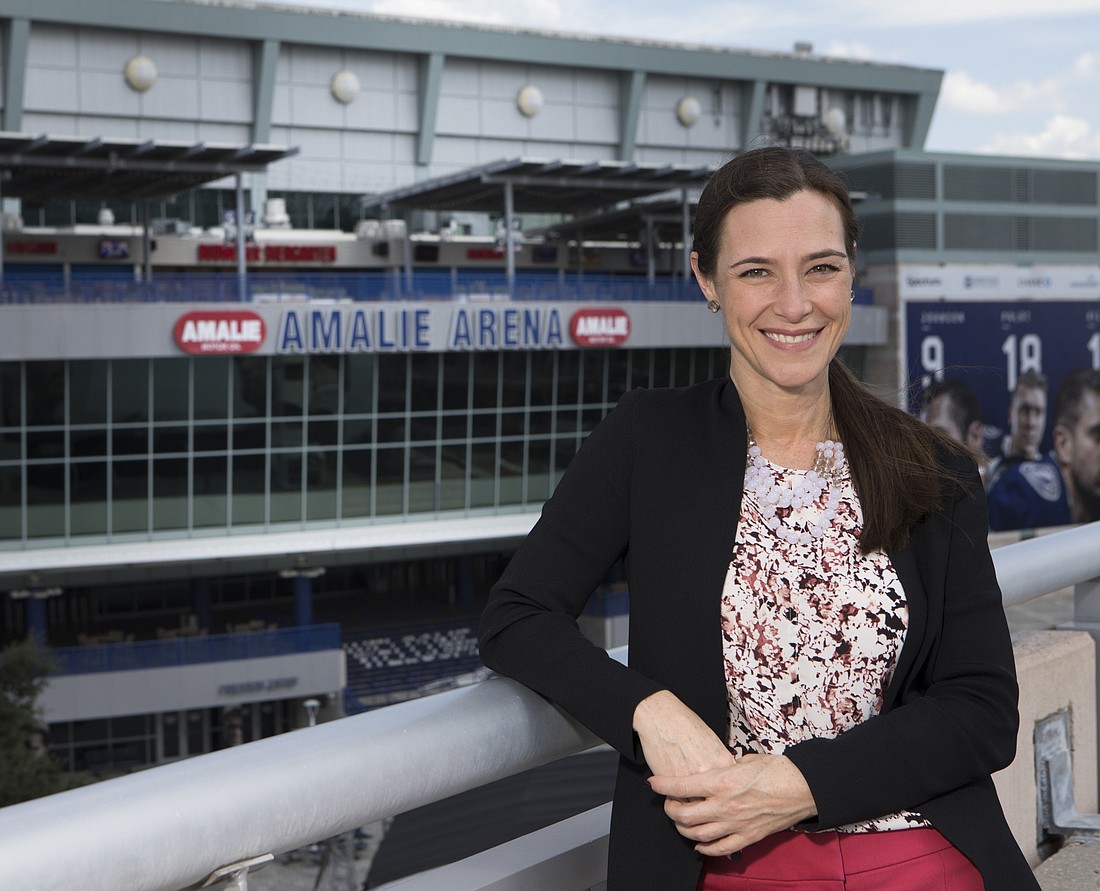- December 13, 2025
-
-
Loading

Loading

Home theater technology and on-demand, streamed content have made it tough to get people off their couches and into stadium seats for live entertainment. As a result, companies like Netflix make money while sports teams have to work harder than ever to get Mom, Dad and the kids out to the ballpark.
Venuetize, a Tampa tech startup, sees a big business opportunity in the quest to put butts in seats.
Under the leadership of co-founder and COO Karri Zaremba, it has created a multifaceted mobile platform that helps venue operators learn, in great detail, how customers experience their spaces and events. The data-driven technology helps users find parking, order and pay for food, manage tickets, get directions, find their way around the arena and access exclusive content related to the team or event they have paid to watch. This comes in the formats of a mobile wallet, mobile ordering, a loyalty and rewards program and more. “We saw a gap in the market around the lack of a platform holding the whole ecosystem together,” Zaremba says.
“When you are a high-growth tech company, it's a lot easier to grow quickly through acquiring strategically.” Karri Zaremba, co-founder and COO of Venuetize
In five years, the company — which makes most of its money off licensing fees it gets from clients who use the platform and technology — has reached deals with a number of premier clients. The list includes Amalie Arena in Tampa, Little Caesars Arena in Detroit, the PGA Tour and the Miami Dolphins football team. Zaremba and co-founder Jon Romm self-funded the firm but have since brought on outside investors as they look to expand rapidly via acquisition. That's a tactic serial entrepreneur Zaremba, 44, mastered at her previous company, Reston, Va.-based Vubiquity, which she says bought seven companies in seven years.
“When you are a high-growth tech company, it's a lot easier to grow quickly through acquiring strategically,” Zaremba says, adding that Venuetize has already made two acquisitions since it was founded. “We’re always looking at other opportunities for expanding vertically or horizontally.”
Zaremba’s goal is to eventually sell Venuetize — which has about 80 employees and plans to hire 10 more this year — to a larger competitor, which is why she says the biggest task facing the firm is to “future proof” its technology while not getting too far ahead of the pack. “Because we are so interoperable with so many other companies, keeping pace with our rate of innovation is sometimes a challenge,” she says.
For Venuetize, a way to overcome that challenge is to become indispensably woven into a client’s mobile app experience. For example, when the Dolphins launched a new smartphone app for the 2017-2018 NFL season, Venuetize handled the development of a mobile wallet packed with innovative features, such as the ability to order and pay for tailgate party supplies, plus discounts on all purchases at Hard Rock Stadium for season ticket holders who use the mobile wallet.
Venuetize’s work for the team was a hit; it increased usage of the app’s mobile wallet by 150%. It also was a success for privately held Venuetize, which doesn’t disclose revenue figures but says gross receipts have doubled every year since 2016. Revenue is on track to double again in 2019, Zaremba says, adding that the bulk of the firm’s income comes from platform licensing fees. “We also make transaction fees on transactions that are driven by our commerce engine, and we have a smaller subset of professional service and support fees," Zaremba says.
Zaremba and Romm set up Venuetize in a way that allows clients to utilize the entire platform or just certain parts of it. That approach is another way that Venuetize becomes indispensable over time. Case in point: Venuetize’s contract with the Dolphins and Hard Rock Stadium has evolved to include an enterprise parking application. And with the stadium now hosting the Miami Open tennis tournament, Venuetize has benefited from work associated with that massive, two-week event, without having to make much of a marketing pitch.
“We’re not having to educate the market,” Zaremba says. “Early on, we had to, but now there’s a lot of word-of-mouth referrals. There’s a ton of demand on businesses to solve for these same challenges.”
That has also resulted in more partnership opportunities with companies — Zaremba cites Major League Baseball as an example — that in the past might have been competitors but now see the value in what Venuetize brings to the table. “It’s not a zero-sum game,” she says.